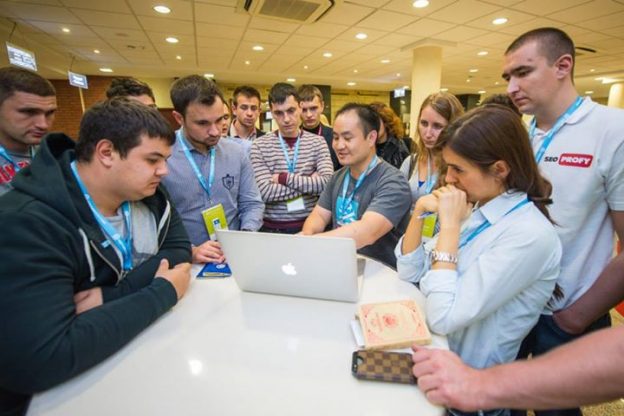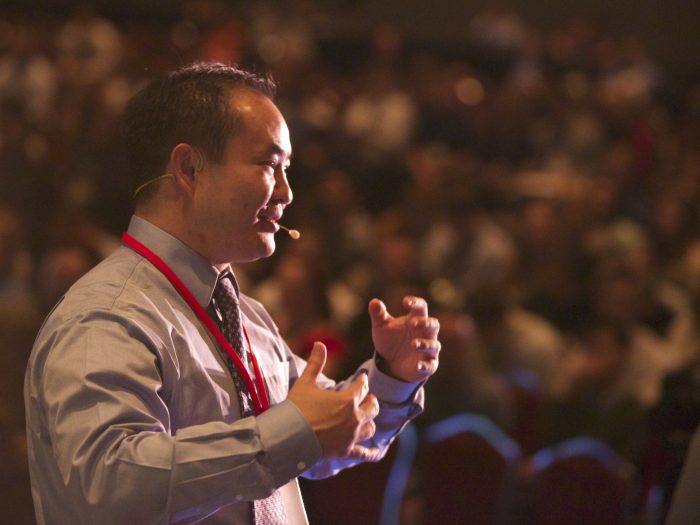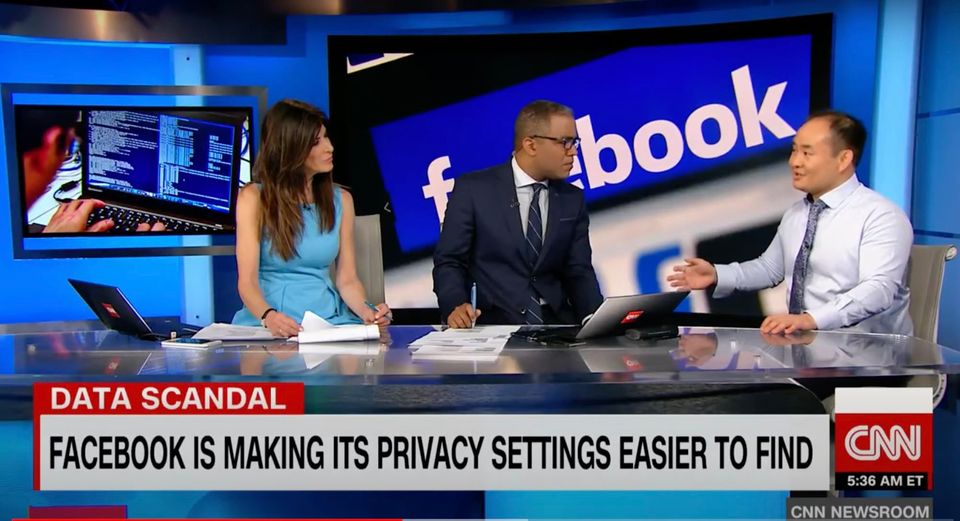Just because you’re on TV doesn’t mean you know what you’re talking about.
I was on CNN in front of 3.5 million people, talking about Facebook’s data privacy and how easily you can manipulate the media for just a Dollar a Day.
It’s scary that people make decisions based on “perceived authority” instead of actual authority.
It must be true because it comes from someone with a blue check mark or many followers.
Indeed, you can use social media to build your perceived authority, like the Dollar a Day course which Alex Berman and I remade.
But more powerful than that is to build your actual authority– to do such a great job for customers that they rave about you.
Collect and distribute their feedback across all channels, using Dollar a Day to promote it. Build your own “Content Factory” (an upcoming course), so your marketing machine runs by itself.
And if several people talking about you happen to drive you some PR (perhaps you use Dollar a Day to target the media), then hats off!
Get your knowledge out there– via your example, openly, and via checklists others can follow.
I’m here to elevate the experts in their field who practice what they preach, not the talking heads trying to become famous.
Social media strategy
Want to know what is my simple strategy to get engagement?
Share your expertise via stories that nobody else but you can tell.
Authority comes from your direct experience, not re-quoting somebody else.
Freely publish what you know– since the right people (who see value) will come to you.
There are no salespeople in the emergency room.
Here’s something that even “SEO experts” don’t know…
Your SEO is your reputation.
What people say about you is Search Engine Optimization.
- So when you take good care of clients, who say good things about you, that’s SEO.
- When you are a guest on someone’s podcast, they share the episode on social media and their site; that’s SEO.
- When you tweet about your favorite place to eat, that’s SEO.
The people who charge money for SEO will now want to argue with me here– listing out all their favorite tools and techno-babble about how clients couldn’t possibly do SEO.
They need to hire an expert in SEO to do this for them, right?
NOPE– except for rare circumstances where you have a large site or complex technical issues requiring someone like Steve Wiideman or Damon Burton to solve– 99% of SEO produces compelling content that people want to share.
If you’re an industry expert like Glenn Vo in dental, then you’re interviewing the leaders in your industry, creating a group of 30,000 dental professionals.
When these pros talk about you, Google sees these signals, which generates more traffic for you from Google.
And that’s SEO, which is the RESULT of your actions, not the activity!

I hope this saves you a ton of headaches and wasted money from people who would love to sell you snake oil.
If you are one of these peddlers, feel free to argue with me.
I built the analytics at a search engine over 20 years ago– and my job was protecting users from SEOs trying to manipulate the search results.
Your SEO is proof of who you are and what you’ve done. That social media proof is undeniable and is a phenomenal currency.
There’s an argument here that SEO is only the optimization you do that search engines need to find your good stuff– That’s what the acronym stands for.
Traffic and opportunities from having a well-ranked site are nothing if you don’t start with taking care of people.
The BEST SEO advice I ever learned was in the 1900s from Stephen Mahoney of Planet Ocean.
“Build your website for the people that will be your customers over the next 10 years. SEO technical details may change, but people will always be looking for good information from reliable sources”
Stephen Mahoney
When we aim to help people with the best quality we can, we still need to help search engines find it. If we keep our priorities straight, SEO, social, and marketing are essential tools to accomplish those goals.
Three core pillars of SEO:
- Site structure
- Content
- External credibility
Most gains come from content and external credibility but are further supported by the solid site structure from which the content and external credibility bounce. Unless someone messes with the website after, good site structure is mostly one-and-done. Then start building that relevance and credibility through content.
One of my friends is pitching a roofing company in Cincinnati
They have 5-star, 115 reviews (10X more than their competition), and over 2k followers on FB with good engagement. GBP is optimized, and they make posts. And their business listings are 95% accurate on 30 or so directories.
However, they barely cracked three packs of zip code cards and finished 64th overall in the city of Cincinnati.
Looking at their site, it’s a mess. Google has indexed it. It’s only five pages, and the content is sparse.
It would be the case for technical SEO with On-site optimization, content, and backlinks.
SEO Implication
A friend showed me the five radiology clinics she paid $2,500 a month for SEO.
This SEO agency had done NOTHING for its clinics.
Here’s one more kicker. One of my friend’s clients is a $25 million company, and they have one Google review, and he got 9. He has been in business for six years now. And they are 15 years in business and have 1 Google review.
Correct – that’s ONE of the several aspects of SEO (offsite SEO, SEO PR, link building… you name it). But a site that sucks at on-site SEO and cannot receive “the juice” correctly is less effective than one optimized (BTW, you can rank even better than some competitors without links).
Ironically, my course on making short-form videos is 2.5 hours long.

I do SEO audits all day, but my website is broken.
I preach the power of personal branding, but I make zero effort to build my brand. I tell other agencies to double their prices, but mine has been the same for the last ten years.
Some people will look at this and say that the cobbler’s son has no shoes.
Or that we should practice what we preach. But they’re missing the point, which is;
Your marketing is no longer done by you, but by your customers and partners.
It’s not a formal “review and rating,” but everything they say about you is social media engagement, mentions at dinner, or casual remarks.
That’s now your marketing.
Your customers will talk about you if you’re good at what you do. Amplify their words by showing gratitude and sharing.
If you’re terrible at what you do, it’s only a matter of time until you expose yourself– no matter how good your marketing is.
The BROPRENEURS who are “keeping it real” say they don’t care what other people think.
The attention-getting extremes of shocking people with controversial remarks (on one end) and inspiring people with “everyone is going to succeed” (on the other end) will die.
I predict this “influencer” and self-declared social media expert trend will revert to old-fashioned PR if it’s not already.
Digital PR. Indeed. The most significant difference between old-school PR and digital PR is that old-school PR is over and done.
Digital PR has SEO implications forever, both from the perspective of the PR showing up in the SERP and also from traffic and link benefits. Digital PR is valuable when you get the hit and possibly timeless.
And that is to shift to having other people talk about you instead of us feeling like we need to be motivational speakers giving “Ted” talks or having Popeye muscles.
Word of mouth and referral channels existed before Steve Jobs was even born.
